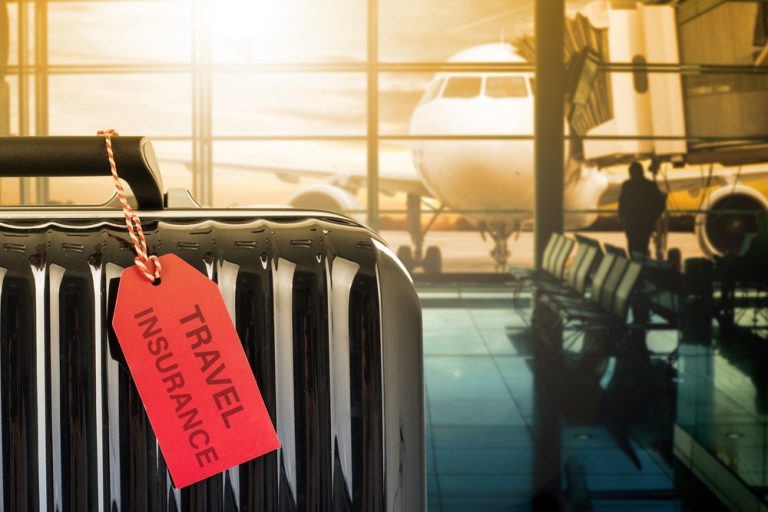 It might not be as fun as researching local attractions, but if you’re heading off for an overseas trip, travel insurance is essential. We don’t want to put a downer on your holiday plans, but the reality is any number of things can go wrong while you’re away and travel insurance is relatively inexpensive compared to what it could cost if you encounter problems like a medical emergency or stolen luggage.
It might not be as fun as researching local attractions, but if you’re heading off for an overseas trip, travel insurance is essential. We don’t want to put a downer on your holiday plans, but the reality is any number of things can go wrong while you’re away and travel insurance is relatively inexpensive compared to what it could cost if you encounter problems like a medical emergency or stolen luggage.
In this article, we explore the top five things you should consider when choosing, and using, travel insurance.
Tip one – save money by comparing online
You can purchase travel insurance directly from your travel agent, airline or credit card company when you book your holiday, but the best deals can usually be found online.
There are online tools that allow you to search and compare travel insurance packages from different providers to find the best deals. The following websites make it easy to narrow down your options based on a few basic details about your trip.
- Canstar – travel insurance
- Choice Australia
- finder.com.au – travel insurance
- Compare the market.com.au – travel insurance
- Compare travel insurance.com.au
Tip two – read the fine print
Yes, it’s boring, but the only way to know you’re covered for everything you need is to read the product disclosure statement. Here are a few basic things that you should keep in mind.
Destinations
Are all your destinations are covered? Even stopovers and in transit destinations? If you travel somewhere that isn’t included in your cover, a claim made for any part of the trip could be denied.
Medical needs
It is wise to choose a policy with unlimited medical cover, including medical evacuation, if you’re heading overseas, even for countries where Australia has a reciprocal health care agreement.
If you have a pre-existing medical condition, look at the product disclosure statement to find out if and how that condition is covered. Depending on the package some pre-existing medical conditions may be automatically covered (for example, asthma and diabetes), some pre-existing medical conditions will require the purchase of additional cover, while some conditions will simply not be covered. If you don’t declare your condition, any claim you make regardless of whether it is related to your condition could be denied.
Personal belongings
Check which of your personal belongings are covered and for how much. Some packages will include an overall amount for baggage that also includes per-item sub-limits that might not be suited to your needs. It’s worth considering whether your home contents insurer can cover expensive items (like mobiles, laptops and jewellery) as portable valuable goods – just be sure to check that this coverage is worldwide before you head off.
Activities
Make sure your package covers the tours and activities you’re likely to be doing on your trip as some things like skiing and scuba diving may require additional coverage.
Getting around
It’s wise not to assume that driving or use of scooters and other transport are covered – just because the tour operator will allow you to hire and use a 100cc scooter doesn’t mean your insurance will pay out if you have an accident. Also, check that your package covers personal liability for the costs of third party damage or injury.
Tip three – record your belongings
Most insurers require proof of purchase or ownership for any claim made for lost or stolen goods. To help speed up the process it’s worth making a list of the items you’re packing before you leave. Take photos of high-value items like jewellery, perfume, cameras, phones, laptops, etc. and hunt down any receipts you may still have. You can take photos of the receipts too and save everything to a secure and central location, like a password protected folder on your computer.
Just a note that claims for lost or stolen goods will also require an official police report to be considered valid.
Tip four – choose an insurer with a 24-hour phone or online chat service
If you find yourself needing to contact your insurer, knowing they are available can provide ease of mind at what might be a difficult time. Just check that the phone line is free and accessible from anywhere in the world.
Tip five – don’t ignore government warnings
Apart from being good practice to heed government warnings, it’s also worth noting that most insurers will not cover travellers for any country for which the Australian Government has issued “do not travel” advice. Even where this is not explicitly stated, an insurance company could consider that a “do not travel” advice issued for a country is a foreseeable risk that warrants denial of any claims made where the traveller has visited this country.
More information
The Australian Government Smart Traveller site has a wealth of information for Australians heading overseas including information specific to the country you are travelling, and also about:
- general information about travel insurance
- travel insurance buyers guide (from Choice Australia)
- reciprocal health care agreements
- travel advisories
If you’re unhappy with the way your insurance company has handled things or you would like to dispute result of your claim you can contact the Financial Ombudsman Service
Article by Anna Rogan





Comments are closed.